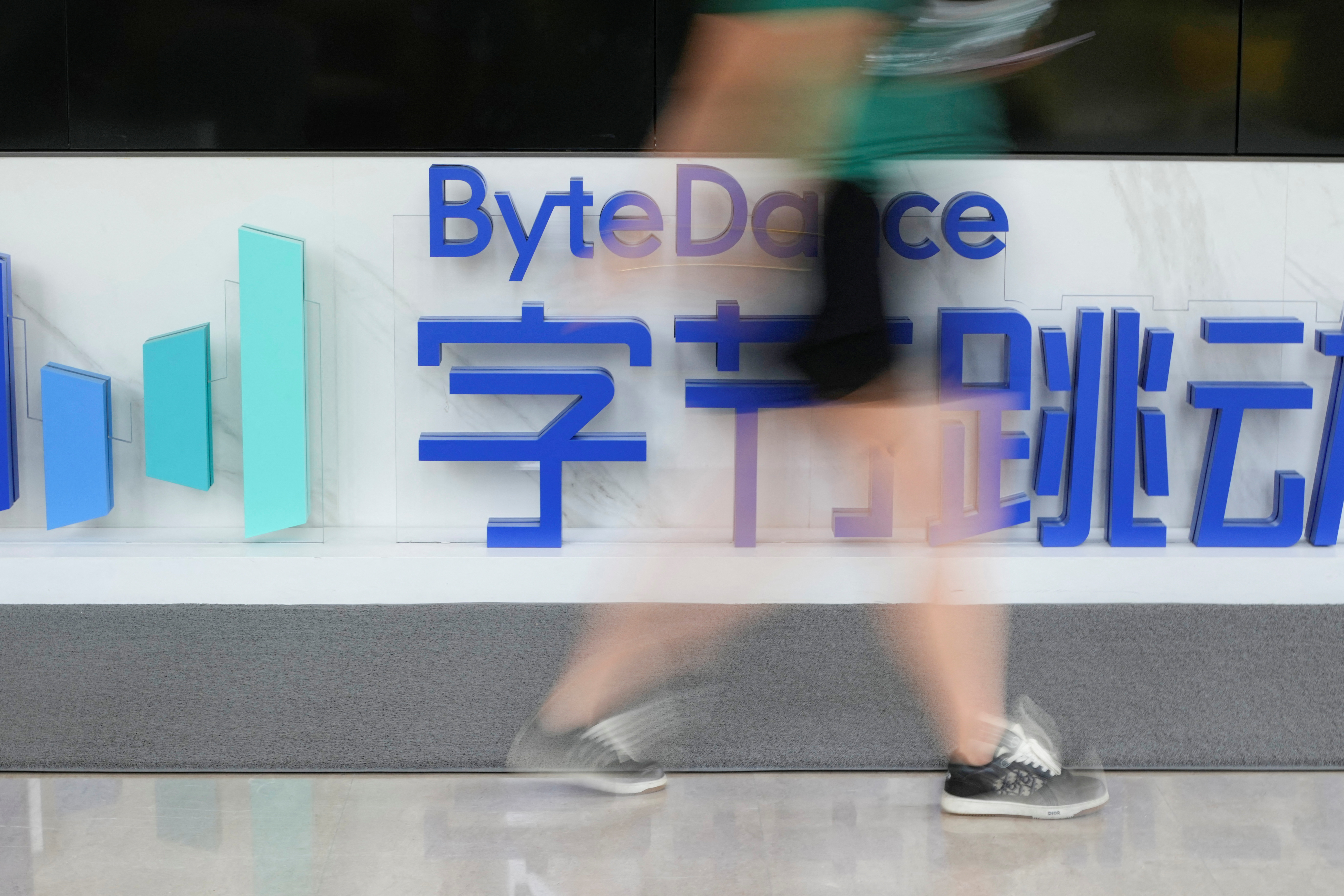
中国数字经济产业快速发展、AI技术加速结合各类生活场景的背景下,来自中国的AI驱动手机应用正在席卷全球市场,然而,其也面临着愈发增多的法律及“身份”挑战。
- 中国企业开发的AI手机应用占据全球下载榜前列,尤其受到年轻族群追捧
- AI备案、数据跨境、地缘政治风险成为相关企业最关注的话题
去年,字节跳动的AI视频剪辑工具CapCut全球年下载量达到6亿次,营收近1.3亿美元,这款“国民级”app帮助字节跳动夯实了在AIGC产品界的巨头地位。
在全球app市场,字节跳动的图片编辑工具Hypic、作业帮的教育辅助工具Question AI都进入了下载量前二十的序列——在教育领域,另一款和Question AI论剑美国市场的app则是来自字节跳动的Gauth。与此同时,来自中国初创企业MiniMax的聊天工具Talkie在美国青少年中大受欢迎。
宁宣凤律师是金杜律师事务所合规业务部管理合伙人,谈及中国AI app大举探索海外市场的原因,宁律师认为扩展商业版图、获得更大市场份额的商业诉求依旧是核心驱动力。此外,由于AI类产品发展有其特殊性,寻求市场多元化是大势所趋。
除了通用AI模型,宁律师观察到越来越多AI垂类应用的涌现和出海。“垂类应用能够在花费相对较低算力的情况下更为充分地发挥数据优势,从而创造价值。未来垂类应用可能呈现出新的生命力。”
关键法律问题
2023年起,全球不同司法管辖区开始颁布AI相关规则,加之AI 产品往往要收集、使用大量数据,而数据本身就是监管热点,这使得中国AI app在出海过程中,于境内外都面对着复杂的法律问题。
一个问题在于AI大模型的备案。“根据中国现有的监管规则,AI大模型是否需在中国进行备案取决于其是否面向中国境内公众提供具有舆论属性或社会动员能力的生成式AI服务。换言之,如果仅面向境外提供服务,理论上不适用备案要求。”宁宣凤律师解释道。
虽然可能不适用国内备案,但宁律师指出,伴随欧盟《AI法案》落地,备案或类似监管手段可能会成为后续全球AI监管的趋势。
“欧盟AI法案中有与我国类似的备案规则,其中要求规定范围内的高风险AI系统在投放欧盟市场或投放使用前,在欧盟的数据库中进行备案。”宁律师说。
“参照欧盟《通用数据保护条例》在数据保护领域引发的‘布鲁塞尔效应’,其他国家及地区在制定AI监管规则时也可能将备案的总体规则纳入其中。”
另一个关键问题在于数据,尤其是跨境数据传输。宁律师介绍道,目前AI市场中的出海存在不同模式,包括app出海、模型出海等等,“不同模式涉及的数据和个人信息保护问题也存在差异”。
以app出海为例,企业实体仍布局在国内,只是产品在海外app商店上架,意味着“AI模型的服务器及数据中心部署在中国境内,可能触发当地数据跨境监管要求”。
宁律师指出,一些在出海策略上走在前列的中国企业实际上已经就此制定了十分成熟的合规方案,“例如搭建多数据中心、在出海目的国搭建运营团队,对其中涉及个人信息,尤其是构成出海目的国当地敏感个人信息的数据形成相对自洽的保护逻辑”。
不过如财新所指出,这种“碎片化”的布局会增加运营难度,并显著抬高成本,宁律师也坦言,实践中并非所有出海企业都严格落实了国内外数据合规监管要求。
潜在的“身份”难题
法律问题之外,宁宣凤律师提醒,此前TikTok在美国市场面对的剥离事件揭示出,以海外为主要市场的中国科技公司的业务稳定性很可能受到地缘政治风险影响。未来,此类中国企业不得不更多面临所谓“身份难题”。
因此,出海科技公司需要不断在商业模式、成本、合规、政策风险间做权衡,尝试寻找那个“最优解”。
宁律师举了几个例子:例如在架构部署方面,公司直接以境内主体向海外市场投放app,其成本显然低于在海外市场新设主体,但可能引发数据跨境和人员管理问题。
而如果基于合规考量部署多数据中心,又需要考虑不同数据中心之间的跨境传输法律关系并配套相应的合规举措,运营成本将显著提升。
如果公司在海外市场新设主体,且涉及境内外实体间人员的直线汇报管理关系,则可能会被认定为境内外主体存在控制关系,进而影响境外主体的独立性判断。
此外,企业还要持续考量中国与出海目的国家和地区的政治法律关系,综合评估潜在的、因诸如地缘政治、国际关系政策变化而带来的商业风险。
“总的来说,公司在出海时应综合考虑各类因素,选定恰当的出海架构及业务布局方案,从而稳定、持续地在海外市场中谋求发展。”宁宣凤律师说。
As Chinese AI apps sweep overseas markets, they face regulatory and identity challenges
- Chinese-developed AI apps dominate global download charts, especially popular among younger users.
- AI filing, cross-border data, and geopolitical risks become key risks.
In the context of China’s rapidly growing digital economy and the integration of AI into everyday life, AI-driven mobile apps from China are making a substantial impact worldwide.
Last year, ByteDance’s AI-powered video editing app CapCut reached 600 million global downloads and generated nearly $130 million in revenue, solidifying ByteDance’s status as a giant in the Generative AI product landscape. Other top-ranked Chinese apps include ByteDance’s Hypic for photo editing, Question AI from Zuoyebang for educational assistance, and Talkie, a chat app from the Chinese startup MiniMax which has gained huge popularity among U.S. teens.
Susan Ning, head of the compliance practice at King & Wood Mallesons, believes that Chinese AI apps’ expansion into global markets is driven primarily by a desire for commercial growth and increased market share. Due to the strict AI regulations at home, pursuing diverse markets has become a prevailing trend. In addition to general-purpose AI models, Ning observes a rise in industry-specific AI applications overseas. “Specialized applications can leverage data more effectively with lower computing costs, potentially unlocking new value and creating new vitality in the future,” she explains.
Key Legal Challenges
Starting in 2023, multiple jurisdictions have introduced AI-related regulations, adding to the challenges Chinese AI apps face abroad, particularly given the large volumes of data these apps collect and process, which remain under regulatory scrutiny. These challenges manifest in several key legal areas. One such issue is the filing requirements for AI models.
“According to current Chinese regulations, whether an AI model must be registered domestically depends on whether it provides generative AI services with public opinion or social mobilization capabilities for Chinese audiences. If the service is exclusively for foreign users, theoretically, it’s not subject to filing requirements,” Ning explains.
Even if domestic filing isn't mandatory, Ning notes the potential for global change. With the implementation of the EU AI Act, similar filing or regulatory measures may become the worldwide standard for AI oversight. “The EU AI Act includes filing requirements for high-risk AI systems to be registered in an EU database before entering the market,” Ning points out. “As with the ‘Brussels Effect’ seen in data protection from the EU’s GDPR, other regions may also incorporate filing requirements as part of their AI regulations.”
Another major issue involves data, particularly cross-border data transfers. According to Ning, overseas expansion for AI apps involves different models, such as app-based or model-based approaches, each with unique data protection considerations. For instance, sometimes the business remains headquartered in China, but the app is available in overseas app stores. This means the AI model’s servers and data centres are located in China, potentially triggering local regulations on cross-border data transfer.
Leading Chinese companies have developed mature compliance strategies for this, such as establishing multiple data centres and creating overseas operational teams. These strategies allow them to address personal data protection, particularly for sensitive information specific to the host country’s regulations. However, this “fragmented” approach raises operational complexity and costs. Ning acknowledges that not all companies strictly adhere to data compliance requirements domestically and internationally.
Identity Challenge
Beyond legal concerns, Ning notes that the recent U.S. spinoff case involving TikTok reveals a potential stability risk for Chinese tech companies focused on overseas markets. Geopolitical tensions could increasingly force these companies to confront what's known as the "identity" issue - the challenge of balancing their Chinese origins with their global aspirations and the need to adapt to different regulatory environments.
As a result, tech companies expanding abroad must carefully balance business models, costs, compliance, and policy risks to find an optimal solution.
Ning offers some examples: if a company deploys an app directly to the overseas market via a domestic entity, costs are lower than setting up a new overseas entity, but this can raise issues with cross-border data and personnel management. On the other hand, deploying multiple data centres to meet compliance requirements increases operational costs by requiring complex cross-border data transfer management and compliance measures.
When a company establishes a new overseas entity and includes direct reporting relationships between domestic and overseas staff, it may risk being viewed as having a control relationship between the entities, potentially affecting the overseas entity’s independence.
Additionally, companies must continue assessing the political and legal landscape between China and the target countries, evaluating the potential business risks arising from changes in geopolitics or international relations.
“In sum, companies expanding abroad should consider a range of factors to choose an appropriate structure and operational plan to ensure stable and sustained growth in overseas markets,” Ning concludes.


